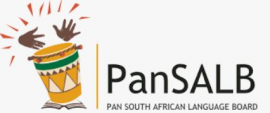
During this decade, the Pan South African Language Board (PanSALB) seeks to normalise and fast track the participation of using indigenous languages in public spaces.
“The board in collaboration with other stakeholders endeavours to promote multilingualism in our schools, advancing mother language education in our country during this decade, which runs from this year until 2032,” PanSALB Chairperson Ntshengedzeni Edward Mudau said on Friday.
Addressing a media briefing during the official launch of the Language Activism Month (February) in Pretoria, he said a pilot project on the initiative to promote multilingualism is already in place in the Eastern Cape and the intention is to roll it out throughout the country.
This comes as the commemorations for the International Decade of Indigenous Languages (2022-2032) are in progress, as proclaimed by the United Nations General Assembly on 18 December 2019, with a preparatory period from 2020 to 2021.
“We also appeal to municipalities, provincial government departments, public entities and enterprises to provide information that is intended for the public in the languages of the communities it is intended for. Another way we can assist in giving people information in their languages is through interpretation and translation of documents,” Mudau said.
The International decade aims at ensuring indigenous peoples’ right to preserve, revitalize and promote their languages, and mainstreaming linguistic diversity and multilingualism aspects into the sustainable development efforts.
It offers a unique opportunity to collaborate in the areas of policy development and stimulate a global dialogue in a true spirit of multi-stakeholder engagement, and to take necessary steps for the usage, preservation, revitalization and promotion of indigenous languages around the world.
The PanSALB board also launched the standardised South African Sign Language version in partnership with the South African Broadcasting Corporation (SABC).
Last September, the PanSALB board called for the public to comment on the South African Sign Language (SASL) interpretation of the national anthem. This coincided with the annual nationwide deaf awareness campaign.
Mudau said the launching of the standardised South African Sign Language version of the National Anthem helps to fulfil the officilisation of the sign language.
“The launch of the standardised South African Sign Language version of the National Anthem forms part of a series of programmes and activities that the board will be embarking upon in order to strengthen the representation of the deaf communities in our society.
“These programmes and activities are aimed at ensuring equal access to information and inclusivity among our people as well as promotes multilingualism, which goes a great deal towards the achievement of social cohesion,” he said.
In 2020, the board launched the South African Sign Language Charter (SASL Charter), which was conceptualised to address issues that relate to communication, access to information, facilities, and social justice for the Deaf community including the type of service provided by SASL interpreters in general. – SAnews.gov.za


